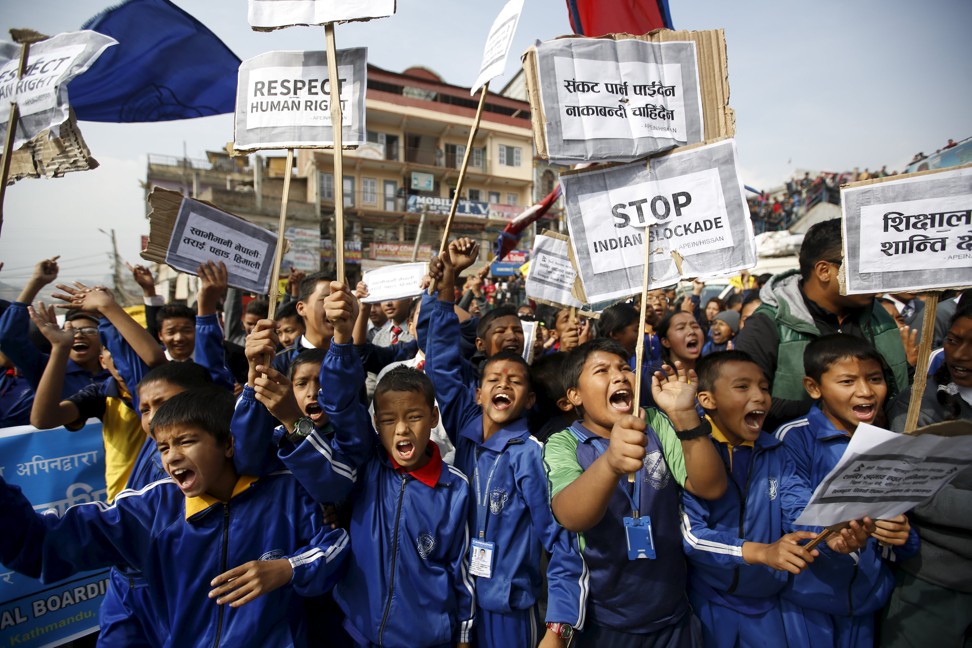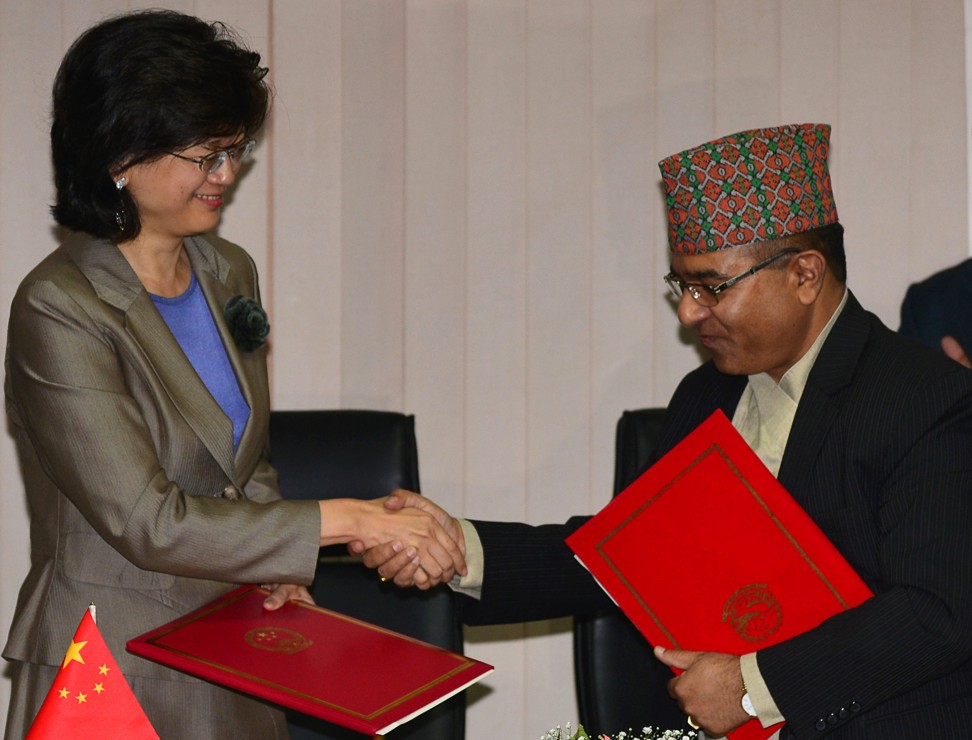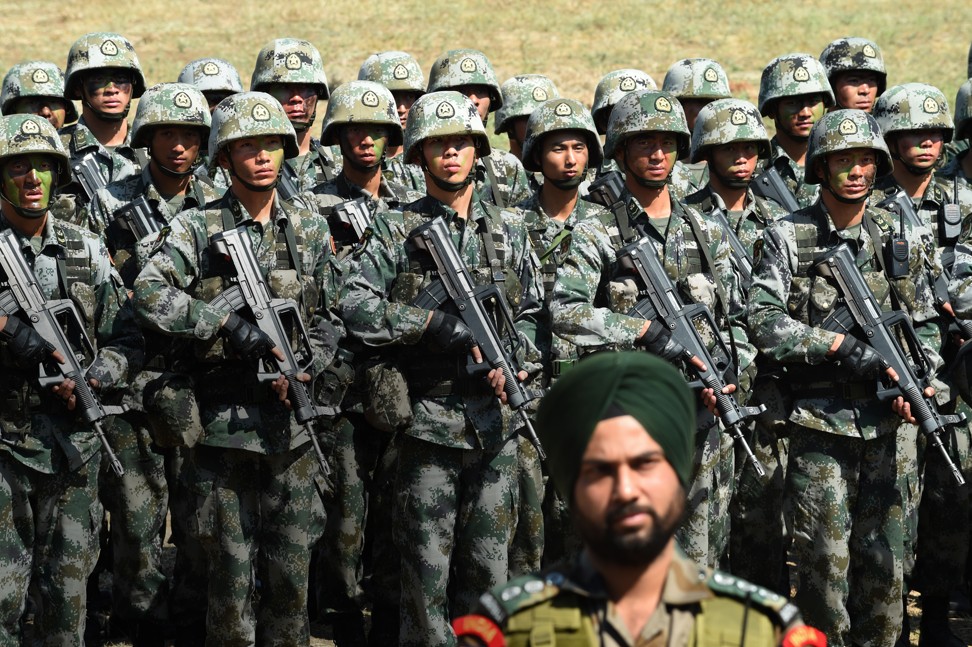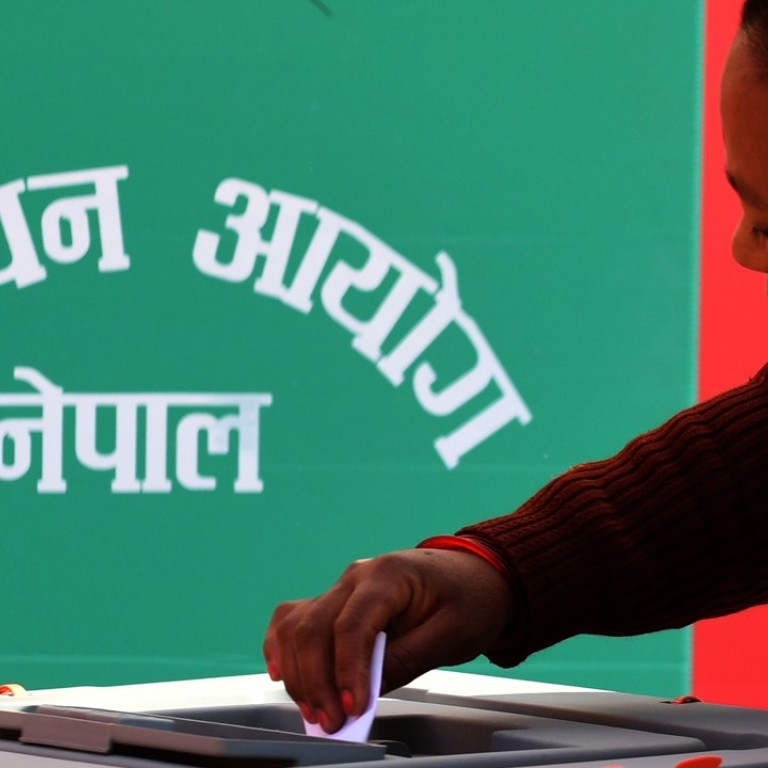
Can Chinese investment help Nepal’s new communist alliance make the break from India?
After years of political and social turbulence, Nepalese people crave stability, and China-led projects can help create jobs, improve infrastructure, analysts say
Nepal’s new government will strive to maintain the country’s “independence” by breaking loose from India’s excessive interference and trying to attract more Chinese investment, according to a senior politician in the recently elected leftist alliance.
A coalition of two communist parties secured about two-thirds of the seats in both the Parliament and the Provincial Assembly, Nepal’s two legislative bodies.
The large margin by which the communist alliance, which is seen as closer to China, won the landmark polls was widely viewed as a repudiation of long-standing Indian influence in the country and an endorsement of stronger ties with Beijing.
The new government will be formed by the Communist Party of Nepal (Unified Marxist-Leninist) (CPN-UML) and the CPN (Maoist Centre).
Ishwor Pokhrel, general secretary of the CPN-UML said in an interview with the South China Morning Post that the result showed that voters wanted an end to the nation’s instability.
“People voted in this election towards political stability,” he said. “This result [is one] which Nepalese people have very eagerly awaited for a long time.”
Analysts said the result marked a new era for the Himalayan nation, sandwiched between two powerful neighbours, after years of political instability caused by civil war, the fall of the monarchy, and the country’s chaotic transition to democracy.
More importantly, analysts say, the election reflects a clear mandate by the people for Nepal’s leadership to divest its dependence on India, a country with which it shares deep cultural ties and a 1,700km open border.
Pokhrel also highlighted the importance of independence for the incoming government.
“Nepal was always an independent country … we are very sensitive about our sovereignty, national integrity, people’s rights. We are very serious,” he said.
The leftist victory was a “reactive result” to excessive Indian interference in Nepal, Surendra KC, a political analyst at Tribhuvan University in Kathmandu, said.
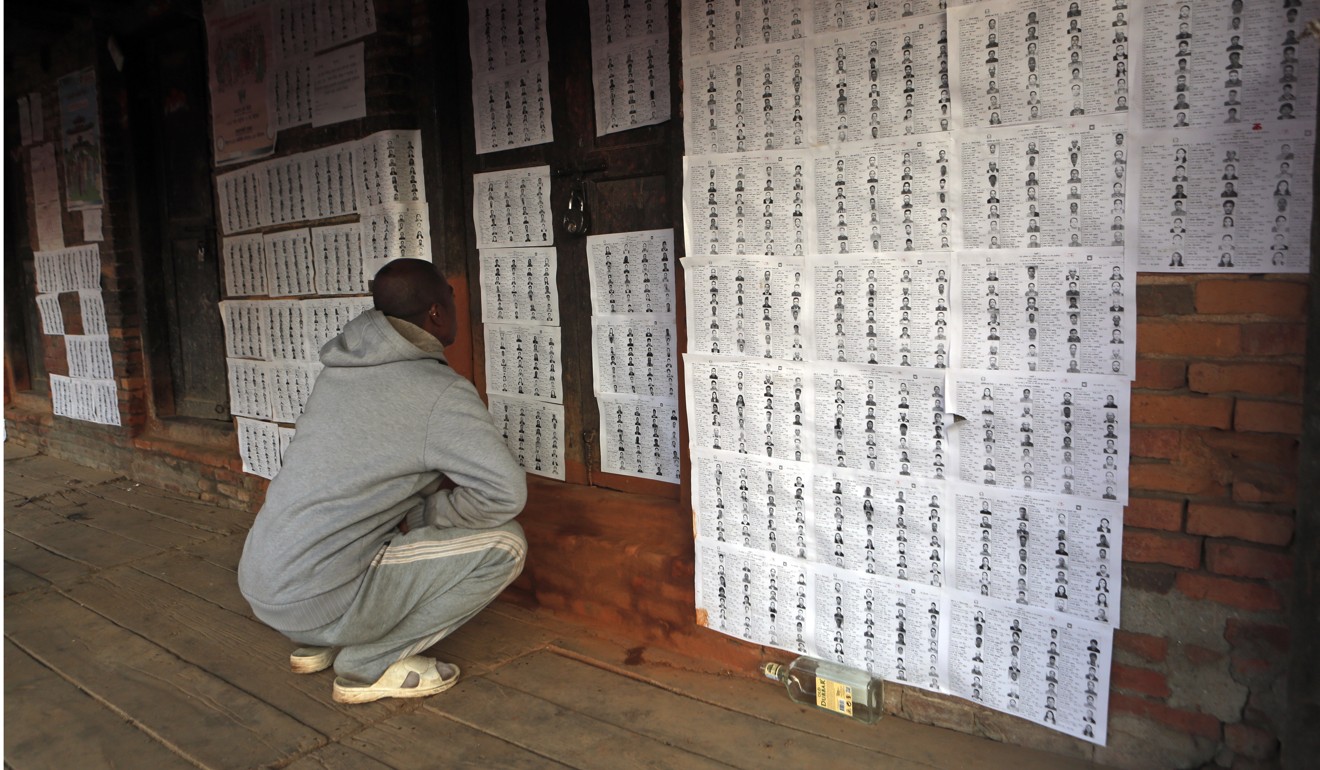
“There is a clear picture now,” he said. “There is shock in India because of this result.”
India has been watching with concern China’s growing influence in its backyard, including deals with the Maldives and Sri Lanka.
However, Pokhrel said that the incoming government would want to engage with its two giant neighbours in a balanced way.
“We are not anti-Indian and pro-Chinese, both are our neighbours,” he said. “We respect both neighbours, we are a landlocked country, we are not any single country-locked.”
Former prime minister and UML chairman KP Sharma Oli is tipped to lead the new government. When last in power he signed a 15-point communique with China on trade and transit cooperation, and during his latest election campaign advocated more Chinese-built infrastructure projects to stimulate job growth.
Oli’s policy stance is “equidistant with China and India” and designed to serve the geopolitical interests of Nepal as a landlocked nation, KC said.
But even as Chinese influence in Nepal continues to grow, Kathmandu will not abandon its friendship with New Delhi, as “India is our hard reality,” he said.
Zhao Gancheng, director of South Asia Studies at the Shanghai Institute for International Studies, said that while Beijing was happy with the election result it still held only limited sway in the country.
“Nepal is far from being China’s ally, and China’s influence remains limited compared to India’s.” he said. “But China has attached great importance to Nepal because we are neighbours and we share a long border.”
Beijing was also happy to increase its engagement with Nepal on investment projects, such as those under its ambitious trade plan known as the “Belt and Road Initiative”.
Anil Sigdel, a Washington-based expert on Nepali politics, said the South Asian nation would make more explicit moves to attract Chinese investment while continuing to maintain its long-standing relationship with India.
“India is trying to have the best official relationship with Nepal, but also understands and realises that China and Nepal also have a very good relationship and that it will grow,” he said. “This is a new phase in Nepal’s foreign policy.”
In recent years, China has funnelled billions of dollars into Nepal’s infrastructure development, including hydropower and road projects.
UML leaders have already indicated that the new government will launch five or six megaprojects aimed at spurring development and job growth, including revisiting the Budhi Gandaki dam project, which was cancelled on the eve of the election.
“China is a strong development partner of Nepal,” Ram Babu Dhakal, undersecretary of the Ministry of Foreign Affairs, said. “We have a lot to do, since the infrastructure that we have is not sufficient.”
The shift also comes at a time when China’s expansive trade plan is helping it to boost its presence across South Asia, a region traditionally dominated by India.
China is currently building a multibillion-dollar economic corridor with Pakistan, has signed a free-trade agreement with the Maldives, and gained control of Sri Lanka’s strategic port after its government struggled to repay loans to Chinese firms.
“India has been preoccupied with China’s growing influence in Nepal, and this ought to be read in conjunction with China’s much greater role in Sri Lanka and Pakistan, leading to widespread fears of a blatant Chinese policy of encircling India,” Mara Malagodi, a London-based lawyer and expert in Nepali politics, said.
Nepali Congress leader Prakash Sharan Mahat, who signed a deal under the belt and road plan in May, said Nepal would not be able to survive if it did not maintain good relationships with both China and India. But he noted concerns about the conditions of Beijing’s investment deals and warned of “falling into a debt trap”, citing Sri Lanka’s struggle to pay off debts to Chinese firms.
“We never say anything against China .. and we welcome Chinese investments,” he said. “But China needs to be sensitive to our limitations and our concerns,” he said.
While China has touted a policy of non-interference in Nepal, its economic assistance does have “a political dimension”, Bhaskar Koirala, director of the Nepal Institute of International and Strategic Studies in Kathmandu, said.
One of China’s major security interests in Nepal is the border with the Tibet autonomous region, a potential hotbed of domestic instability over questions of sovereignty. With Sino-Indian relations still tense following a months-long border stand-off on the Doklam plateau this summer, China is keen to maintain friendly relations with Nepal to help quell independence forces in Tibet, Koirala said.
More importantly, China’s respect for Nepal’s sovereignty, juxtaposed against a more imposing India, meant Kathmandu would “look forward to collaborating with China to enhance the development of Nepal”, he said.
Many of the people who voted for the new communist alliance, like jewellery store owner Umesh Khadka, are eager for it to embrace Chinese investment, which they see as key to improving Nepal’s infrastructure and connectivity.
“It’s going to change so many things,” the 31-year-old said. “Everyone is happy that these projects will come.”
Additional reporting by Nectar Gan


